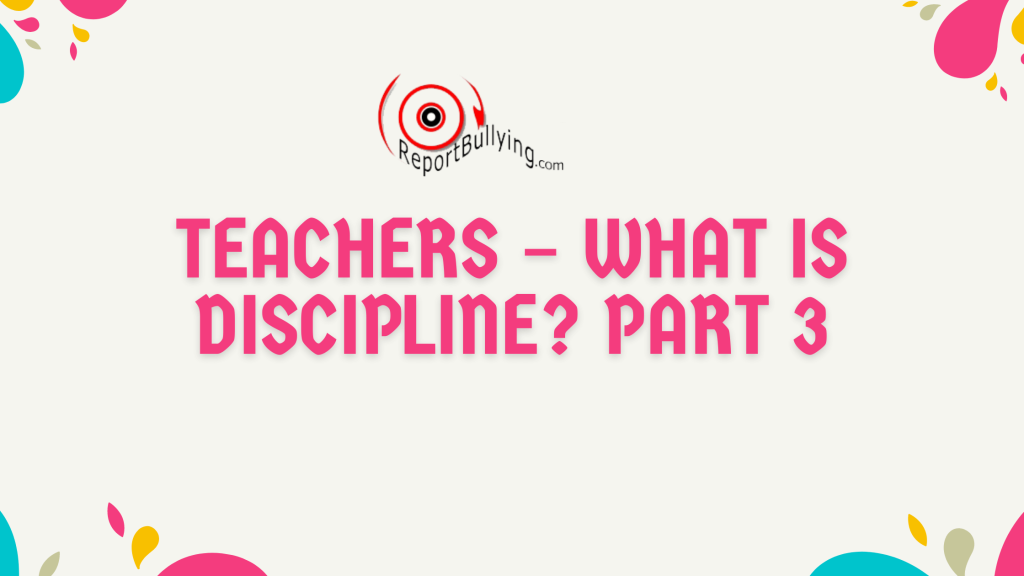Principles of Discipline
What is discipline? When this question is asked, most people tend to answer that “discipline” is enforcing a certain set of rules in order to correct behavior or handing out punishment when behavior is out of order.
Most of us tend to believe in discipline as reacting to negative behavior. We forget that there are also positive and neutral aspects of discipline. In fact, if we go by the dictionary meaning, Webster’s definition: control gained by enforcing obedience or order,[1] we see that discipline is a set of processes designed to encourage good behavior, rather than dealing out punishment to someone whose behavior is inappropriate.
At times, if teachers focus only on the negative in the name of enforcing discipline and forget to encourage positive behavior, it may end up having an upsetting effect on the students in their classroom.
Further, teachers are the role models in schools who the students look up to. They have to ensure that they set a good example in front of their students as this leads to setting up a strong foundation for the students. I am sure we all remember certain teachers that left an impression on us- in my heart I thank them all the time.
I hear this often in my travels ‘We can’t ask our students to do something if we don’t do it ourselves!’
Mahatma Gandhi was one of the greatest agents of change India has ever known. A woman once approached him for help. She was worried about her son’s consumption of large amounts of sugar. The woman feared her son might not survive if he continued this behavior. “Gandhi,” she said as she cautiously approached him, “my son is killing himself with sugar. If he does not stop, he will die! Please, help him.”
“Come back in two weeks,” the guru replied, much to the woman’s consternation.
Nevertheless, she left; determined to return in the allotted time.
Two weeks passed and sure enough, the woman approached Gandhi again. “Gandhi! Remember me. I asked you to help my son who is eating too much sugar.”
This time Mahatma Gandhi placed his hands upon the boy’s head, “Stop eating sugar!” he commanded.
The mother was puzzled, even disturbed by this response. “Is that it?” she demanded to know, “If that is all you are going to do, why didn’t you do it two weeks ago?”
Gandhi replied, “Two weeks ago, I myself was eating sugar!”[2]
We must understand that to preach to anybody, even if it’s our own children, we have to do the same thing with complete honesty and integrity. Unless we restrict ourselves, we cannot expect the child to do the same. To teach proper behavior and conduct to others, we must first examine what we are doing. In other words, we can’t ask students to behave if we don’t.
[1] Merriam-Webster, Definition of Discipline, http://www.merriam-webster.com/dictionary/discipline (March 11, 2012) [2] A Boundless World, Gandhi, and The Sugar Story, http://www.aboundlessworld.com/gandhi-and-the-sugar-story/ Partial words (Feb 10, 2011)Read More: The positive side of Discipline – Teachers by Jim Jordan

